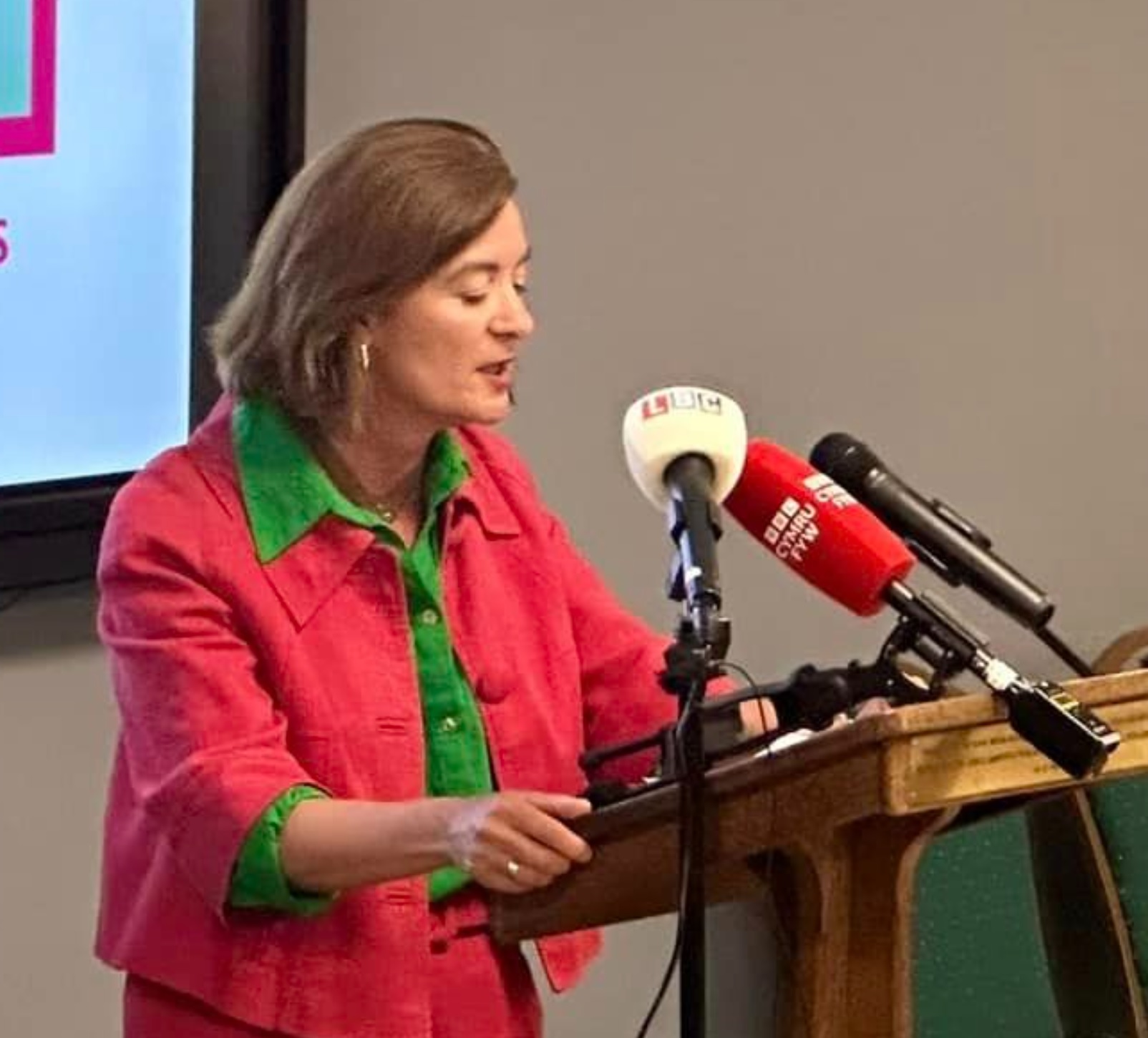Business
Workplace volunteering could boost productivity and unlock billions

EXPANDING workplace volunteering opportunities to cover all employees in the UK could generate billions in economic gains (£1.2 billion – £3.6 billion per year in wellbeing benefits to individuals, £1.6 billion – £2.8 billion per year in improved net productivity)
Ensuring all employees have access to volunteering opportunities could save between 1.4 million and 2.5 million working days of sickness absence.
Workplace volunteering has the potential to boost productivity, improve employees’ wellbeing, and generate billions for the UK economy, according to a new report by Pro Bono Economics (PBE).1
The report – ‘Triple dividend: How workplace volunteering can make us happier, healthier and more productive’ – which has been produced for business volunteering charity Pilotlight, found that net productivity gains of between £1.6 billion – £2.8 billion could be unlocked for the UK economy by expanding workplace volunteering opportunities.2
PBE’s analysis revealed that 17 – 23 million employees currently do not have access to workplace volunteering, and so are missing out on the health benefits of volunteering and the opportunities to learn new skills. By expanding workplace volunteering opportunities to cover all employees in the UK, the current untapped potential could generate £1.2 billion – £3.6 billion in wellbeing benefits per year to the individuals themselves.
It could also reduce levels of absenteeism, with research showing that participation in a workplace volunteering scheme provides an average reduction in absence of around 0.9 days per year for each member of staff volunteering.3 The number of days that employees have taken off work due to illness has risen sharply since the pandemic, with 186 million lost alone in 2022, an increase of more than a third over the 2019 level. The total cost of sickness absence to UK employers was around £24 billion – roughly equivalent to the GDP generated by Newcastle – or £6.4 billion higher than if absence rates stayed at the 2019 level.4
Turning to the productivity benefit overall, the PBE report points to studies which have suggested the productivity impact of workplace volunteering is sizeable, with high-skilled individuals who volunteer experiencing an estimated £2,300 boost to earnings. If the estimated productivity increase was applied to all the 1.4 – 2.5 million additional volunteers who participated from workplace volunteering to all employees, it could provide a gross productivity increase of between £2.2 billion and £3.9 billion.
Even after deducting the costs of lost time and administration fees for volunteering schemes, the productivity benefits could amount to net productivity gains of between £1.5 billion and £2.8 billion to the UK economy.5
There is a clear appetite from employees from the expansion of workplace volunteering. Analysis by NCVO suggests that between one quarter and a third of employees will take advantage of workplace volunteering when it’s available. This means that between 1.5 million and 2.8 million additional people might volunteer if workplace volunteering schemes were expanded across all employers.
While boost workplace volunteering would have some costs to the employer, the benefits more than outweigh those costs. For the employer, workplace volunteering schemes such as those run by Pilotlight which bring businesses and charities together could deliver between £1.50 and £3.60 of benefits for every £1 spent.
To make the most of the opportunity, research by the charity has suggested that employers should take steps to help employees around the options for volunteering. More than a third of employees surveyed (38%) said that an obstacle to volunteering is a lack of guidance from their employer. Of those currently involved in workplace volunteering, 79% believe that businesses themselves benefit from the practice.6
The benefits also have the potential to positively impact on communities, at a time when they are in need of extra support. Three in ten (30%) charities reporting increased rates of staff burnout as they struggle with the triple challenge of rising demand, difficulties recruiting volunteers and challenges with recruitment. This is particularly true of small charities, with almost six in ten (59%) reporting that recruiting volunteers is a major concern for them following a long-term decline in volunteer participation rates.8
Dr Jansev Jemal, Director of Research and Policy at Pro Bono Economics, said: “Increasing access to workplace volunteering opportunities has a triple dividend, as it could boost productivity and unlock billions in the UK economy, while providing much needed support for charities. In addition to wellbeing for employees, there’s a compelling, hard-nosed business case for considering workplace volunteering, including boosts to health and skills.
“As businesses take up this opportunity, there is a need to be realistic about the challenges for the charities themselves. Using volunteers effectively takes resources to manage, oversee and support those that are giving up their time. Businesses and other funders will need to consider how they can benefit by supporting the underlying costs of volunteering programmes, rather than assuming that an offer of time alone will suffice.”
Ed Mayo, Chief Executive of Pilotlight, said: “When it comes to business and charity, these results change everything – volunteering is not a cost, it is an investment. It is good for charity, good for the volunteer and good for the bottom line.
At the heart of this, in the partnerships we have designed with a range of leading businesses, is how employees develop their skills as they deploy them in a radically different setting. In future, it will not be the PR or corporate affairs department that leads on employee volunteering, but HR leaders who see it as an integral part of their toolkit for developing talent and skills.”
Jack Kidder, Responsible Business Manager at Henry Boot PLC, said: “At Henry Boot, we know that volunteering empowers our people to dedicate their time, skills, and passion for the benefit of our communities. This is not only impactful for charities, but also hugely beneficial for our business. Volunteering their time allows our people to connect with issues they care about in the communities in which we work and live. It creates a genuine sense of purpose and cohesion as our people come together to make a real difference for others – whether through inspiring learners, supporting communities, restoring habitats, or sharing knowledge. Volunteering enables our people to develop their skills and experience the positive wellbeing effects associated with helping others. This use of our time is helping shape our evolving culture as we celebrate being a long-term sustainable business that genuinely cares for the communities we work with, while we create exciting new places across the UK.”
Alexandra Berry, Head of Sustainability at the Strand Palace Hotel said: “Our team love to get involved in team-building hikes, red nose days, wellbeing walks, ‘Wear it Pink’ days, charity runs, bingo nights, themed quizzes, clothing donation drives, as well as offering our team a paid volunteering day each year. Feedback from our team has expressed these community events provide socialisation and relaxation outside of the hotel alongside contribution to a charitable cause, of which they are passionate about supporting.
“In 2023, the team raised over £3,000 through 8 local fundraising activities. What’s more, we have a regular commitment with The Connection at St Martins for our team members to volunteer to spend time with The Connection’s guests in their art room. With arts, crafts and chatting, the visits from the Strand Palace team help to build the guests’ confidence and social skills, providing a creative outlet away from the stress of being homeless.”
Business
Tax deadline for self-employed and landlords as digital system goes live in April

Quarterly online reporting to become mandatory for higher earners under HMRC shake-up
MORE than 860,000 sole traders and landlords across the UK are being urged to prepare now for major changes to the way they report tax, with new digital rules coming into force in just two months.
From April 6, thousands of self-employed workers and property landlords earning over £50,000 a year will be required to keep digital records and submit quarterly income updates to HM Revenue & Customs under the Government’s Making Tax Digital scheme.
The changes form part of a wider overhaul designed to modernise the tax system and reduce errors.
Instead of submitting figures once a year, those affected will use approved software to record income and expenses throughout the year and send short quarterly summaries to HMRC. Officials stress these are not extra tax returns, but updates intended to spread the workload and avoid the usual January rush.
Free and paid software options are available, with the system automatically generating the figures needed for submission.
At the end of the tax year, users will still file a Self Assessment return, but most of the information will already be stored digitally.
Craig Ogilvie, HMRC’s Director of Making Tax Digital, said the move should make tax reporting simpler.
He said: “With two months to go until MTD for Income Tax launches, now is the time to act. The system is straightforward and helps reduce errors. Thousands have already tested it successfully.
“Spreading your tax admin throughout the year means avoiding that last-minute scramble to complete a tax return every January.”
More than 12,000 quarterly updates have already been submitted during a voluntary trial.
Phased rollout
The new rules will be introduced gradually:
• From April 2026 – those earning £50,000 or more
• From April 2027 – those earning £30,000 or more
• From April 2028 – those earning £20,000 or more
To ease the transition, HMRC says it will not issue penalty points for late quarterly submissions during the first 12 months.
After that, a points system will apply, with a £200 fine only triggered once four late submissions are reached.
Anyone unable to use digital tools for genuine reasons can apply for an exemption.
Tax agents and accountants are advising clients to prepare early to avoid last-minute problems.
Further guidance, webinars and sign-up details are available via GOV.UK.
Business
Bid to convert office space into chocolate factory, salon and laundrette

A CALL for the retrospective conversion of office space previously connected to a Pembrokeshire car hire business to a chocolate factory, a beauty salon and a laundrette has been submitted to county planners
In an application to Pembrokeshire County Council, Mr M Williams, through agent Preseli Planning Ltd, sought retrospective permission for the subdivision of an office on land off Scotchwell Cottage, Cartlett, Haverfordwest into three units forming a chocolate manufacturing, a beauty salon, and a launderette, along with associated works.
A supporting statement said planning history at the site saw a 2018 application for the refurbishment of an existing office building and a change of use from oil depot offices to a hire car office and car/van storage yard, approved back in 2019.
For the chocolate manufacturing by ‘Pembrokeshire Chocolate company,’ as part of the latest scheme it said: “The operation comprises of manufacturing of handmade bespoke flavoured chocolate bars. Historically there was an element of counter sales but this has now ceased. The business sales comprise of online orders and the delivery of produce to local stockist. There are no counter sales from the premises.”
It said the beauty salon “offers treatments, nail services and hairdressing,” operating “on an appointment only basis, with the hairdresser element also offering a mobile service”. It said the third unit of the building functions as a commercial laundrette and ironing services known as ‘West Coast Laundry,’ which “predominantly provides services to holiday cottages, hotels and care homes”.
The statement added: “Beyond the unchanged access the site has parking provision for at least 12 vehicles and a turning area. The building now forms three units which employ two persons per unit. The 12 parking spaces, therefore, provide sufficient provision for staff.
“In terms of visiting members of the public the beauty salon operates on an appointment only basis and based on its small scale can only accommodate two customers at any one time. Therefore, ample parking provision exists to visitors.
“With regard to the chocolate manufacturing and commercial laundrette service these enterprises do not attract visitors but do attract the dropping off laundry and delivery of associated inputs. Drop off and collections associated with the laundry services tend to fall in line with holiday accommodation changeover days, for example Tuesday drop off and collections on the Thursday.
“With regard to the chocolate manufacturing ingredients are delivered by couriers and movements associated with this is also estimated at 10 vehicular movements per week.”
The application will be considered by county planners at a later date.
Business
First Minister criticised after ‘Netflix’ comment on struggling high streets

Government announces 15% support package but campaigners say costs still crushing hospitality
PUBS, cafés and restaurants across Wales will receive extra business rates relief — but ministers are facing criticism after comments suggesting people staying home watching Netflix are partly to blame for struggling high streets.
The Welsh Government has announced a 15% business rates discount for around 4,400 hospitality businesses in 2026-27, backed by up to £8 million in funding.
Announcing the package, Welsh Government Finance Secretary Mark Drakeford said: “Pubs, restaurants, cafés, bars, and live music venues are at the heart of communities across Wales. We know they are facing real pressures, from rising costs to changing consumer habits.
“This additional support will help around 4,400 businesses as they adapt to these challenges.”
The announcement came hours after Eluned Morgan suggested in Senedd discussions that changing lifestyles — including more time spent at home on streaming services — were contributing to falling footfall in town centres.
The remarks prompted political backlash.
Leader of the Welsh Liberal Democrats, Jane Dodds, said: “People are not willingly choosing Netflix over the high street. They are being forced indoors because prices keep rising and wages are not.
“Blaming people for staying at home is an insult to business owners who are working longer hours just to survive.”
Industry groups say the problem runs deeper than consumer behaviour.
The Campaign for Real Ale (CAMRA) welcomed the discount but warned it would not prevent closures.
Chris Charters, CAMRA Wales director, said: “15% off for a year is only the start. It won’t fix the unfair business rates system our pubs are being crushed by.
“Welsh publicans need a permanent solution, or doors will continue to close.”
Across Pembrokeshire, traders have repeatedly told The Herald that rising energy bills, wage pressures and rates — rather than a lack of willingness to go out — are keeping customers away.
Several town centres have seen growing numbers of empty units over the past year, with independent shops and hospitality venues reporting reduced footfall outside the main tourist season.
While ministers say the relief balances support with tight public finances, business groups are calling for wider and longer-term reform.
Further debate on rates changes is expected later this year.

-

 Crime2 days ago
Crime2 days agoSex offender jailed after living off grid in Pembrokeshire and refusing to register
-

 Health18 hours ago
Health18 hours agoHealth board targets rise in steroid and gym drug use across west Wales
-

 News3 days ago
News3 days agoPrincess of Wales visits historic Pembrokeshire woollen mill
-

 Crime7 days ago
Crime7 days agoPembroke man accused of child sex offences sent to Swansea Crown Court
-

 Health5 days ago
Health5 days agoDoctor struck off after sexual misconduct findings at Withybush Hospital
-

 Crime20 hours ago
Crime20 hours agoTeacher injured and teenager arrested for attempted murder at Milford Haven School
-

 Community7 days ago
Community7 days ago50s women threaten legal action over pension compensation refusal
-

 Crime3 days ago
Crime3 days agoHakin man’s appeal delayed again as Crown Court seeks guidance on insurance law

























